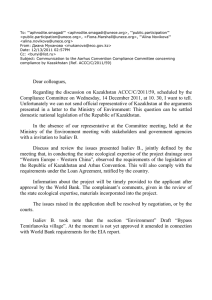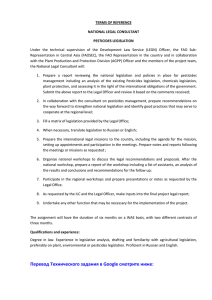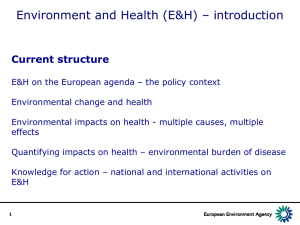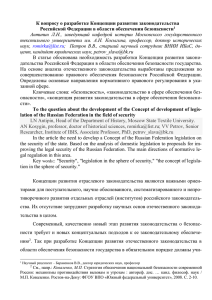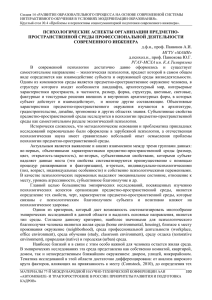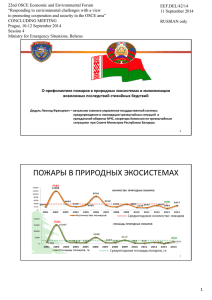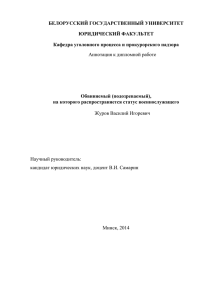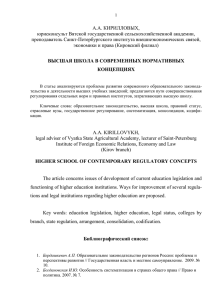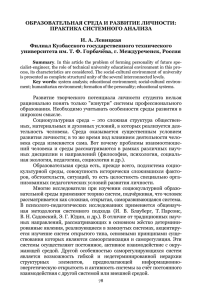STUDY ON STANDING FOR INDIVIDUALS, GROUPS AND
advertisement
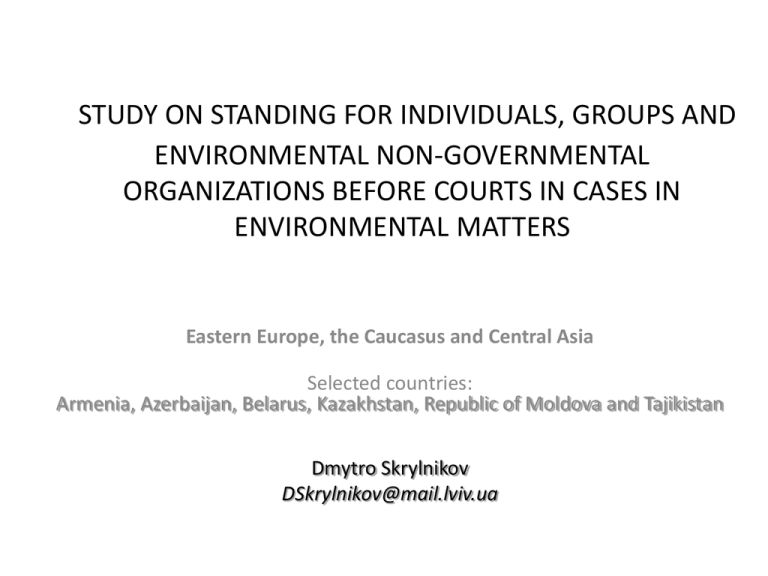
STUDY ON STANDING FOR INDIVIDUALS, GROUPS AND ENVIRONMENTAL NON-GOVERNMENTAL ORGANIZATIONS BEFORE COURTS IN CASES IN ENVIRONMENTAL MATTERS Eastern Europe, the Caucasus and Central Asia Selected countries: Armenia, Azerbaijan, Belarus, Kazakhstan, Republic of Moldova and Tajikistan Dmytro Skrylnikov DSkrylnikov@mail.lviv.ua Purpose and methodology of the study • The purpose of this study is to identify criteria for standing for individuals, groups and environmental non-governmental organizations before courts or other review bodies competent to decide cases in environmental matters. • In order to gather the necessary information for the study, a questionnaire was developed and distributed to the national experts in Russian. • Information on the countries was provided by the national experts: Matanat Asgerova (Azerbaijan), Gore Movsisyan (Armenia), Elena Laevskaya (Belarus), Svetlana Kovlyagina (Kazakhstan), Natalia Zamfir (Republic of Moldova) and Tatyana Khatiukhina (Tajikistan). • Consultations and comments: April 2013, June 2013(TF), December 2013 Contents • General Part I. Purpose and methodology of the study II. Key issues and trends III. Findings • Overview of Countries IV. Azerbaijan V. Armenia VI. Belarus VII. Kazakhstan VIII. Republic of Moldova IX. Tajikistan Specific issues of standing for individuals, their groups and environmental NGOs • Challenging the refusal of access to environmental information • Challenging the legality of decisions, acts and omissions of public authorities in relation to Article 6 of the Aarhus Convention • Challenging acts and omissions by private persons “which contravene provisions of its national law in relation to the environment” • Challenging acts and omissions by public authorities “which contravene provisions of its national law in relation to the environment” • Claim for pause/stop of the activity • Actio popularis • Claiming for damage Findings/ Выводы • In most countries, there is an ambiguous interpretation or application of the criteria of legitimate interest / legally protected interest for individuals or ENGOs in cases relating to the environment -----------------------------------------------------------------------------------------• В большинстве стран существует неоднозначное применение или толкование критериев законного интереса/охраняемого законом интереса для отдельных лиц или ЭНПО в делах, касающихся окружающей среды • In many countries, there is inconsistent or unclear relationship between substantive and procedural rights in the environmental field. In most countries in case of violations of legislation relating to the environment, individuals and ENGOs may challenge acts and omissions, both by public authorities and by private individuals, but usually only in the case of infringement of their rights, freedoms or interests, in connection with this there is a need of review or interpretation of the provisions of national legislation in the light of paragraph 3 of Article 9 of the Aarhus Convention. ---------------------------------------------------------------------------------------• Во многих странах существует непоследовательная или нечеткая связь между материальными и процессуальными правами в сфере окружающей среды. В большинстве стран в случае нарушения законодательства об охране окружающей среды физические лица и ЭНПО могут оспорить действия и бездействия, как государственных органов, так и частных лиц, но, как правило, только в случае нарушения их прав, свобод или интересов, в связи с чем, существует необходимость пересмотра или толкования положений национального законодательства в свете пункта 3 статьи 9 Орхусской Конвенции. • The results of this study indicate the need for improving the legislation of countries in order to address existing conflicts between the relevant environmental legislation and civil procedural legislation (economic procedural or administrative procedural legislation) and also with a purpose to insure possibility to challenge actions / omissions of private persons or public authorities violating the laws relating to the environment. ---------------------------------------------------------------------------------------• Результаты данного исследования указывают на необходимость совершенствования законодательства стран в целях решения существующих конфликтов (коллизий) между соответствующим экологическим законодательством и гражданскопроцессуальным законодательством (хозяйственнопроцессуальным или административно-процессуальным законодательством) и с целью обеспечения возможности обжаловать действия/бездействие частных лиц или государственных органов, которые нарушают законодательство, касающееся окружающей среды. • In some countries there is also a need to address the contradictions between the legal provisions of legislation on NGOs (ENGOs) and the relevant provisions of environmental legislation and / or civil procedural legislation (economic or administrative procedural legislation). The concept of lawsuits on behalf of an indefinite number of persons that exists in the legislation of all participating countries in relation to the consumers’ rights could be extended to the cases relating to the environment by improving and amending legislation and practices. ------------------------------------------------------------------------------------------------• В некоторых странах также существует необходимость устранения противоречий между нормами законодательства, регулирующего деятельность НПО (ЭНПО) и соответствующими нормами экологического и/или гражданско-процессуального законодательства (хозяйственнопроцессуального или административно-процессуального законодательства). Концепция исков в интересах неопределенного круга лиц, которые существуют в законодательстве всех стран-участниц в отношении прав потребителей, может быть распространена на дела, касающиеся окружающей среды, путем улучшения и изменения законодательства и практики. • Among other issues related to access to justice the need to eliminate financial barriers to access to justice in cases relating to the environment was especially noted by the majority of the participants of this study. • In some countries, among other general problems, the issues of general mistrust of public to the judiciary as well as the lack of jurisprudence on the issues addressed in the study were raised. ---------------------------------------------------------------------------------------• Большинством участников исследования, среди других вопросов, связанных с доступом к правосудию особо была отмечена необходимость ликвидации финансовых барьеров в сфере доступа к правосудию по делам, касающимся окружающей среды. • В некоторых странах, среди проблем общего характера, отмечаются проблемы общего отсутствия доверия общественности к судебной системе, а также отсутствия судебной практики по вопросам, рассматриваемым в исследовании. • The countries highlighted the need to raise awareness of judges, prosecutors, lawyers and NGOs in the field of legislation and case law relating to the environment, especially regarding application of international agreements, including the Aarhus Convention, should be raised. These issues should be reflected in the programs and courses for trainings of judges, prosecutors, judicial workers, as well as in the teaching materials used for these purposes. --------------------------------------------------------------------------------------• Странами была отмечена необходимость повышения осведомленности судей, прокуроров, а также юристов и НПО в сфере законодательства и практики рассмотрения дел, касающихся окружающей среды, особенно относительно применения норм международных соглашений, включая Орхусскую конвенцию. Указанные вопросы должны найти отражение в программах и курсах повышения квалификации судей, прокуроров, работников юстиции, в учебных пособиях, используемых в указанных целях. Issues to discuss/ Вопросы для дискуссии • How to address existing conflicts between the relevant environmental legislation and civil procedural legislation (economic procedural or administrative procedural legislation) in relation to standing? • Каким образом решить существующие конфликты между соответствующим экологическим зак-м и гражданско-процессуальным зак-м (хозяйственно- процессуальным или административнопроцессуальным зак-м) в отношении правовой правоспособности? • Challenging acts or omissions “which contravene provisions of its national law in relation to the environment” (does such violation should directly affect the rights and legitimate interests or not?) • Оспаривание действий и бездействия, «которые нарушают положения законодательства, относящегося к окружающей среде» ( должно ли такое нарушение прямо затрагивать права и законные интересы или нет? ) • Standing for ENGO: protection of own rights and interests and / or rights and interests of members vs. in the interests of an indefinite number of persons? • Правовая правоспособность ЭНПО: нарушение прав интересов организации и/или членов ЭНПО vs. интересов неопределённого круга лиц?
